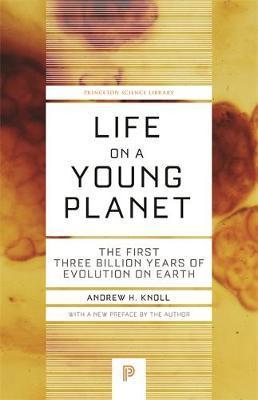Life on a Young Planet

Life on a Young Planet
Readers go into the field to confront fossils, enter the lab to discern the inner workings of cells, and alight on Mars to ask how our terrestrial experience can guide exploration for life beyond our planet. Along the way, Knoll brings us up-to-date on some of science's hottest questions, from the oldest fossils and claims of life beyond the Earth to the hypothesis of global glaciation and Knoll's own unifying concept of "permissive ecology." In laying bare Earth's deepest biological roots, Life on a Young Planet helps us understand our own place in the universe--and our responsibility as stewards of a world four billion years in the making. In a new preface, Knoll describes how the field has broadened and deepened in the decade since the book's original publication.
PRP: 138.64 Lei
Acesta este Prețul Recomandat de Producător. Prețul de vânzare al produsului este afișat mai jos.
124.78Lei
124.78Lei
138.64 LeiLivrare in 2-4 saptamani
Descrierea produsului
Readers go into the field to confront fossils, enter the lab to discern the inner workings of cells, and alight on Mars to ask how our terrestrial experience can guide exploration for life beyond our planet. Along the way, Knoll brings us up-to-date on some of science's hottest questions, from the oldest fossils and claims of life beyond the Earth to the hypothesis of global glaciation and Knoll's own unifying concept of "permissive ecology." In laying bare Earth's deepest biological roots, Life on a Young Planet helps us understand our own place in the universe--and our responsibility as stewards of a world four billion years in the making. In a new preface, Knoll describes how the field has broadened and deepened in the decade since the book's original publication.
Detaliile produsului













